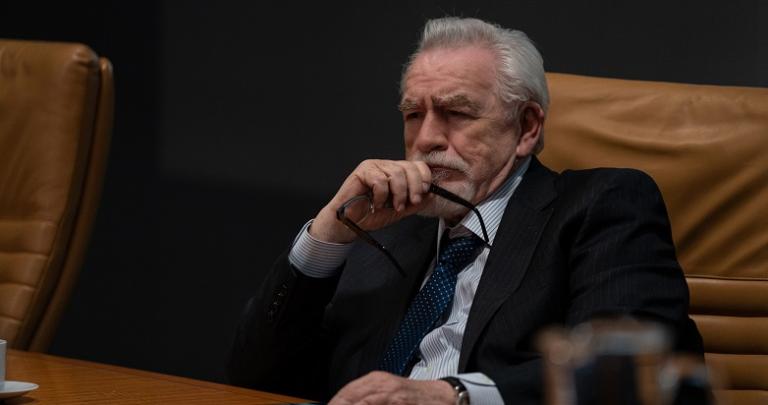HBO’s Succession, the latest “prestige drama” beloved of TV insiders and critics, returned on Sunday, March 26, for its fourth and final season. And it was a hit.
From HBO:
The season four debut of SUCCESSION garnered 2.3 million viewers across HBO Max and linear telecasts, marking a series high. Total viewing for Sunday night was up 62% compared to last season’s premiere (1.4M) and 33% compared to last season’s finale (1.7M), with season 3 episodes going on to average 7.2 million viewers per episode across platforms. Viewership figures are based on Nielsen and first party data.
The show even won the Emmy for outstanding drama series in 2022.
The insanely wealthy Roy family continues to splinter, bicker, hurl profanities and gross insults at each other, and toss billions of dollars — and the lives of real employees, one presumes — around like they’re ordering tacos.
After ignoring it for a while, professional curiosity got the better of me during the lockdown, and I watched the first two seasons. Then, falling prey to the sunk-cost fallacy, I watched season three.
Now, we have season four, and it’s more of the same. The whole time, I’ve been trying to figure out why people think this show is brilliant. Then there’s the larger question: why do we watch shows about awful people?
What Is Succession, and Who Are the Roys?
Let’s be clear, the Roys — and just about all the people in their immediate orbit — are awful people: selfish, vain, greedy, mean, heartless, perverse and cruel (and some are frequently stupid).
The aging father, Logan (Brian Cox), has built a media empire, which also includes theme parks and cruises (so he’s sort of Murdoch crossed with Disney). Meanwhile, his entitled, spoiled adult offspring (Alan Ruck, Jeremy Strong, Sarah Snook, Kieran Culkin) fight him and each other to get their hands on the spoils.
I’ve watched shows about these kinds of people before and enjoyed them. For example, The Tudors, The Sopranos, Deadwood, Silicon Valley (OK, there were not-awful people on this show, but they all had their moments) and Yellowstone.
(We’ll get back to the whole Deadwood/Yellowstone/1923 thing, in a later post.)
Terrible people often make for good storytelling … provided they’re not all irredeemable. There have to be people that we root for, even if they don’t start out as good people.
Their journey from dark to light is, or should be, part of the arc of the show.
So, What’s the Issue With Succession?
The problem with Succession is that the characters don’t progress. They’re no more mature, sensible, kind, enlightened or actually good at business (other than Logan) than they were at the beginning (OK, son-in-law Tom is way more scheming and slightly more pathetic, so that’s something, I guess).
If anything, some of them are worse.
Since Logan has supposedly right-wing politics, I suppose certain more left-leaning TV critics and industry folk enjoy watching him do his evil thing, because, in their view, of course, he does evil things.
But he’s no different from many other high-powered, ruthless media types, regardless of political affiliation. Perhaps fans enjoy his evil while congratulating themselves that no one in their circle is that way — even though, unless they’re willfully blind or dumb, they have to know that’s not true.
Or, there’s a kind of pleasure (or shock of recognition, for some folks) in watching his clueless children stumble around, wrecking their lives and countless others, in a quest to deal with their daddy issues.
And Then There’s the Writing
After all, this kind of family dynamic in drama goes back to King Lear — even if Shakespeare managed it without the endless profanity and sexual innuendo. Honestly, if you took the swear words and icky jabs and jokes out of Succession, each episode would probably be 28 minutes long.
I used to say the same thing about Deadwood, as the f-words-per-minute ratio climbed steadily upward over its three seasons. Silicon Valley‘s scripts were equally peppered with profanity.
Now, I didn’t enjoy these shows because of the mass amount of cussing, but in spite of it. I consider it to be lazy writing, even if writers — including Deadwood‘s otherwise brilliant David Milch — have justifications for it.
Really, there are other words in the English language. Try some.
In my experience, when writers are enjoined from relying on frequent profanity, they get more inventive and interesting.
I just started watching a Netflix action series written by a guy who has worked primarily in network TV. It seems evident that he’s just tickled now to be able to liberally sprinkle in the salty language — and none of it sounds natural in the dialogue.
He was more powerful when he had to write dialogue without it. Take that for what it’s worth.
So, Why Watch Succession?
First up, I’m not recommending that you do. There are more profitable ways to spend your time, like doing laundry or learning how to bake sourdough bread.
I’m there for the same reason I watch some other things — I write about TV, and sometimes, you’ve got to keep up on what’s successful out there and try to figure out why people like it.
That’s the same reason, after several seasons, I finally dove into Yellowstone. But at least that show provides beautiful Western vistas, some genuinely interesting and potentially redeemable characters, and Kevin Costner on a horse, squinting into the misty distance.
All that counts for a lot.
Still, Every Now and Then …
But occasionally, Succession has just a glimmer of light. Logan Roy was raised Catholic, and it’s evident that some part of that has stuck with him.
In the fourth-season premiere, he escapes his glum birthday party to wind up in a diner with his bodyguard. Logan starts up a discussion about the possibility of an afterlife. He doesn’t think so, but he has his “suspicions.”
He also discusses how humans are just economic units, functioning in markets, but there’s a sad resignation about how he says it.
Before leaving the party, though, he gripes that he thought there’d be a “churchman” there, saying, “a cardinal was mentioned. Bit of f***ing class.”
In general, even though just about all the characters are probably agnostic or atheist, God doesn’t get slagged a lot on the show. It’s not much, but there is that.
If only Jesse Armstrong, the show’s British creator, was willing to give Logan a full-blown crisis of actual faith, the show could get really interesting.
I don’t think he will, but I’d be happy to be proven wrong.
UPDATE: Oh, well, so much for that.
In Conclusion
There’s nothing inherently wrong with telling stories about terrible people. The Bible is full of them. But if they start out on the road to Hell and then just wind up there, what’s the point of watching the trip?
Image: Photograph by Macall B. Polay/HBO
Don’t miss a thing: Subscribe to all that I write at Authory.com/KateOHare















